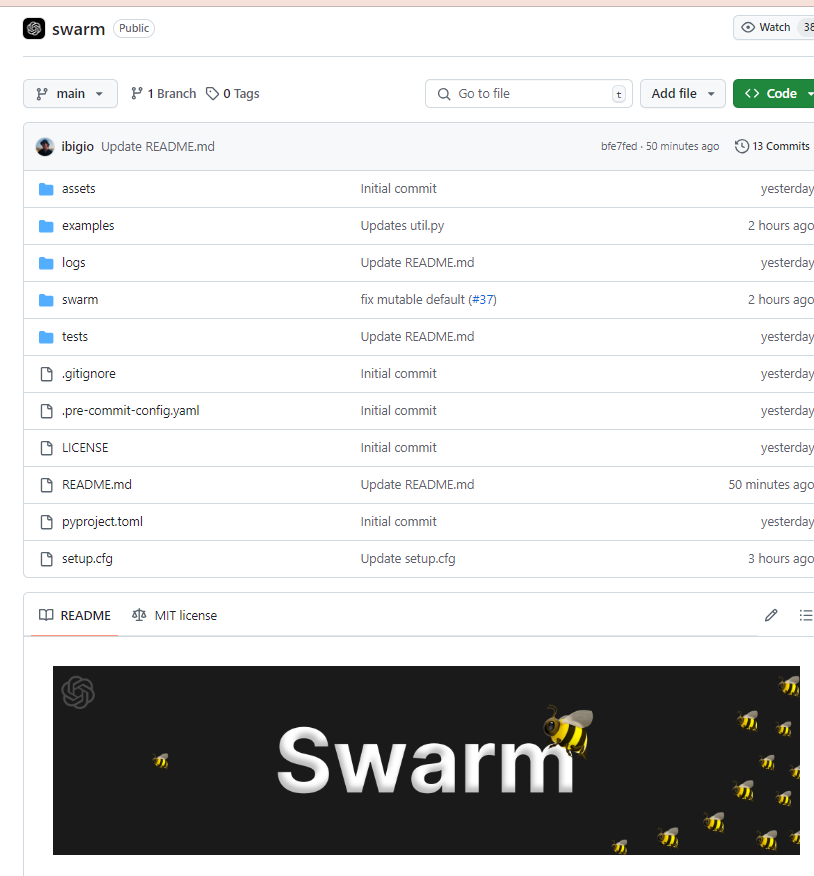The latest experimental framework, Swarm, introduced by the OpenAI Solutions team, is bringing new possibilities to the AI field. This lightweight toolkit, specifically designed for building, orchestrating, and deploying multi-agent systems, is transforming the way we approach complex tasks.
At the core of the Swarm framework is the concept of enabling multiple AI agents to work collaboratively, each with its own specific tasks and capabilities. Through a carefully designed collaboration mechanism, these AI agents can function as an efficient team, collectively handling complex workflows.

This is an intelligent customer service system: the receptionist AI is responsible for understanding customer needs initially, the technical support AI handles professional issues, and the after-sales AI focuses on returns and exchanges. Swarm enables these AI agents to work seamlessly together, flexibly switching as needed, to provide customers with a comprehensive service experience.
The two core concepts of the Swarm framework—agents and handoffs—provide a solid foundation for multi-agent collaboration. Each agent acts like a professional AI employee, and the handoff mechanism ensures that tasks can be smoothly transferred between agents, enabling efficient execution of complex processes.

This Python-based framework leverages OpenAI's Chat Completions API, not only supporting flexible handoffs between agents but also allowing developers to customize agent behaviors and invoke specific functions to execute tasks. Its stateless design facilitates large-scale task processing and distributed system applications.
Swarm's application scenarios are extensive, from multi-step task processing to complex workflow management, all benefiting from its unique advantages. Whether it's customer service, data analysis, or content creation, Swarm can effectively enhance the efficiency and quality of task processing through multi-agent collaboration.
For developers, Swarm offers great flexibility and scalability. By defining the behaviors and capabilities of different agents, developers can build powerful, seamless AI systems tailored to specific needs.
With the rapid development of AI technology, frameworks like Swarm for multi-agent collaboration undoubtedly open new doors for us. It not only enhances the ability of AI systems to handle complex tasks but also expands the frontiers of AI applications. In the future, we have reason to expect that Swarm will showcase its unique charm in more fields, bringing revolutionary changes to the practical application of AI.
Project link: https://github.com/openai/swarm










